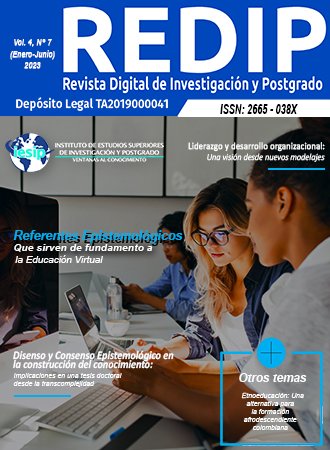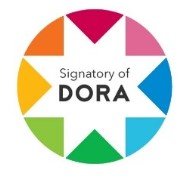Use of ICT (Information and Communication Technologies), Development of logical-mathematic
DOI:
https://doi.org/10.59654/4xdj5m47Keywords:
Education, school, teacher, integration, strategies, learning.Abstract
The main objective of education is to allow the human being to develop capacities and skills in
which he/she acquires knowledge that enriches the integral evolution of the human being, the
teacher is a fundamental part of the educational learning process. Not only the teacher can teach in the classroom, but also in other environments. In recent times the school has become an integrating space, hosting children and adolescents with special educational needs, which has helped to promote the rights of this disadvantaged population. In order to achieve this process of integration/exclusion, it is necessary that the teacher has adequate training so that he/she can obtain all the pedagogical tools to be able to provide a quality education to meet all the expectations of this population, This becomes a challenge for teachers so that there are no negative teacherschool consequences that could lead to a delay in the teaching-learning process, not only for students with special needs but also for their environment. It is necessary for the management of the institutions to be prepared so that the process of integration into the school system is not disrupted with the necessary tools and strategies. In this line of ideas, the purpose of this essay is to make a hermeneusis about the educational management of the schoolchild with special educational needs by the regular classroom teacher in the face of educational integration/inclusion.
Downloads
References
Arriechi, M. (10 de enero de 2017). Gestión docente en el contexto de la educación primaria venezolana. https://www.indteca.com/ojs/index.php/Revista_Scientific/article/view/190/281
Constitución de la República Bolivariana de Venezuela. (2000). Gaceta oficial de la República de Venezuela, 5453 (Extraordinario). Marzo 24, 2000.
Marín, M. (2004). Alumnos con necesidades educativas especiales. Madrid: editorial EUNED Poggiolo, L. (2007). Estrategias de aprendizaje: una perspectiva teórica. Venezuela: Fundación Empresas Polar.
Rodríguez, Y., Ochoa, N. y Ángel, M. (2010). La experiencia de investigar. Valencia, Carabobo: Universidad de Carabobo. Valencia.
Silber, J. (2007). Pedagogía y Humanismo en el pensamiento de Ricardo Nassif. Archivos de Ciencia de la educación. 2007. P. 4. https://core.ac.uk/download/pdf/301032967.pdf
Villanueva, M. y rebolledo, M. (2011). Transversalidad. La teoría en la práctica. Caracas: Fondo Editorial FEDUPEL.
Vivas, L. (2020). El avance del docente especializado en educación especial. Revista Digital UNIR. Universidad Nacional de la Rioja. España.
Downloads
Published
Issue
Section
License
Copyright (c) 2023 Revista Digital de Investigación y Postgrado

This work is licensed under a Creative Commons Attribution-NonCommercial-ShareAlike 4.0 International License.
Esta licencia permite a los reutilizadores distribuir, remezclar, adaptar y desarrollar el material en cualquier medio o formato únicamente con fines no comerciales, y solo siempre que se atribuya al creador. Si remezclas, adaptas o construyes sobre el material, debes licenciar el material modificado bajo términos idénticos. CC BY-NC-SA incluye los siguientes elementos:
![]() POR: se debe dar crédito al creador.
POR: se debe dar crédito al creador.![]() NC: Sólo se permiten usos no comerciales de la obra.
NC: Sólo se permiten usos no comerciales de la obra.![]() SA: Las adaptaciones deben compartirse en los mismos términos.
SA: Las adaptaciones deben compartirse en los mismos términos.











